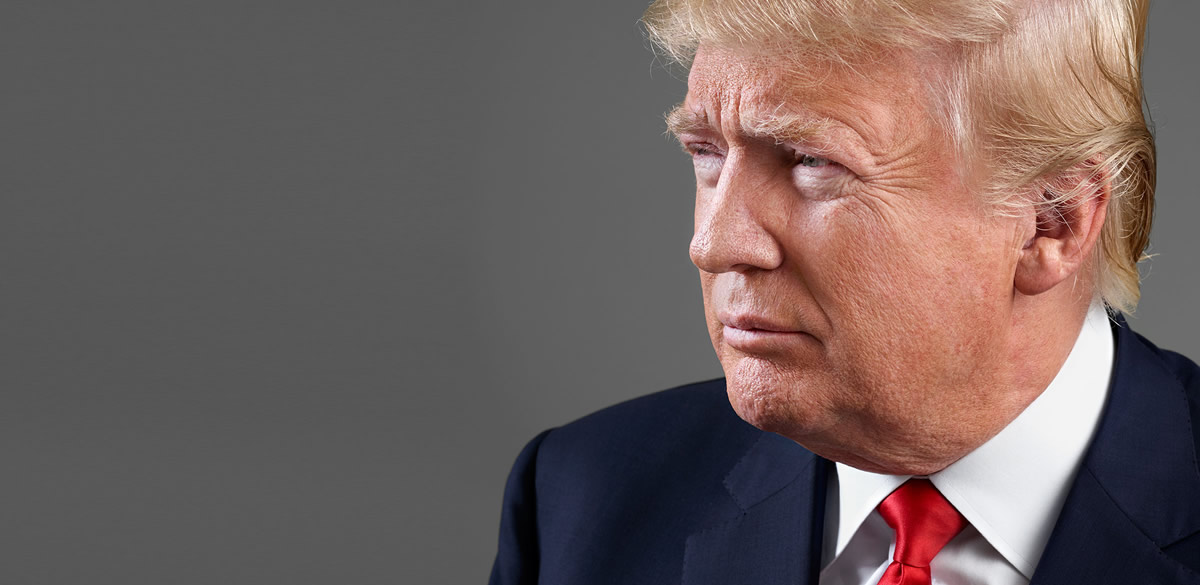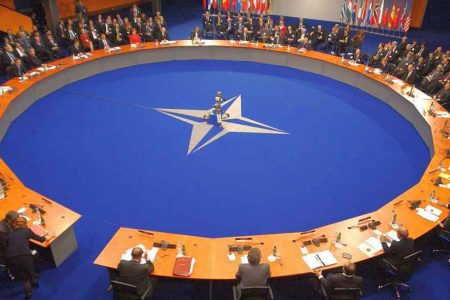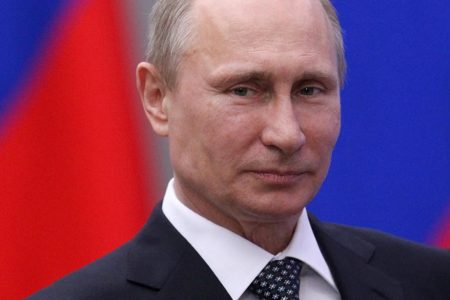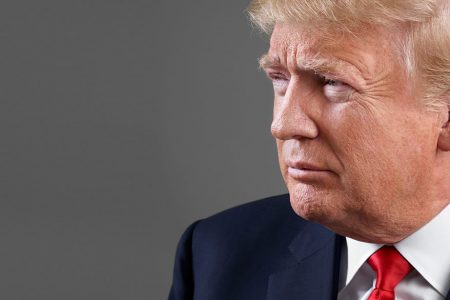Given President-elect Donald Trump’s ukase-like tweets last week, if President George W. Bush has not phoned his successor once removed with a crisp message, he should do so immediately. Six words are enough. “Donald, you are not president yet!” And, the 43rd president might have added, “And please do a little more homework before sounding off.”
The intervention of Trump via Twitter and MSNBC anchor Mika Brzezinski into the most vital and potentially existential national security issues is, at best, unhelpful. These tweets followed the post- election congratulatory phone calls Trump accepted from the Taiwan president and Pakistani prime minister. The first called into question the 45-year-old “one China policy.” The second provoked India.
More seriously, Trump has called for “greatly strengthening and expanding” our nuclear weapons and boasted about winning a nuclear arms race against Russia; rejected the Obama administration’s abstention of a U.N. Security Council resolution condemning Israel for expanding settlements into the occupied territories; and threatened two major defense contractors – Boeing over the cost of the next Air Force One and Lockheed Martin over the huge cost growth of the F-35 Lightning II fifth-generation fighter.
Since Dwight Eisenhower promised to go to Korea to end that war in 1952, no other president-elect has imposed himself so dramatically on the political scene as has Trump. The president-elect has done this with 140 characters rather than press conferences or written op-ed pieces. Serious people worry whether these interventions help or hurt American security, especially when each appears to be an instinctive rather than a well thought-out response. And many fear this style of instant reaction is indicative of what will be a very active presidential bull in a very fragile china shop.
Concerning the need for fuller understanding and knowledge of the issues, consider the tweets about nuclear weapons and the costs of Air Force One and the F-35 Lightning. During the campaign, Trump did not seem to understand what the nuclear triad of land, sea and air deterrent forces was or meant. Nor did he acknowledge that both Russia and America have signed the New START treaty limiting both sides to 1,550 strategic launchers and about 5,000 warheads.
If Trump was reacting to Russian President Vladimir Putin’s meeting with his senior military leaders in which Putin vowed to make Russian strategic nuclear capabilities sufficient to defeat the West’s defensive anti-ballistic systems, did he appreciate the argument the Russian president was making? The answer appears to be no.
Regarding Boeing and Air Force One, while the company’s CEO Dennis Muilenberg pledged to keep the cost below $4 billion, that is not his or Boeing’s call. It is the White House that sets Air Force One’s requirements to protect the president from all dangers whether kinetic or electronic that drive costs.
In prompting Boeing for an F-18 Super Hornet alternative to the F-35, did anyone advise the president that such a request had been made before and proved to be unworkable? Or did Trump know that only the Navy and Marines fly the F-18 not the Air Force? And did anyone inform the chief executive-to-be that eight other nations are planning to buy or have bought F-35s so that cuts to the program could be disastrous for this coalition?
But suppose Trump had taken a different tack based on a fuller understanding of these issues. He could have reminded Putin that Ronald Reagan helped bankrupt the Soviet Union with the Strategic Defense Initiative. That tweet might have said: “Vlad, Star Wars broke you last time. Don’t force us to do it again!”
About Air Force One, a tweet might have read: “$4 billion for AF One is outrageous. We will ensure the price is right.” And instead of trying to leverage Lockheed Martin’s F-35 costs with an upgraded Super Hornet, the next commander-in-chief could have proposed: “Unmanned aerial vehicles are smart, effective and can create jobs. Boeing and Lockheed, what can you do about that?”
Whatever one thinks of the president-elect, the greater challenge is not to make America great again. The challenge is to confront and fix the myriad problems, many irrational and self-imposed by a government in gridlock, that got Trump elected in the first place. Instinct is important provided it is headed in the proper direction. Instinct based on fuller knowledge and understanding is even better.
Perhaps the 43rd and 44th presidents can pass that message to the 45th.




